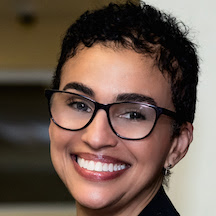 The Institute for Diversity and Ethics in Sport (TIDES) at the University of Central Florida recently released its annual report on equity in leadership at the 131 colleges and universities that make up the Football Bowl Subdivision (FBS) of Division I of the National Collegiate Athletic Association. These educational institutions are generally the powerhouses of college athletics.
The Institute for Diversity and Ethics in Sport (TIDES) at the University of Central Florida recently released its annual report on equity in leadership at the 131 colleges and universities that make up the Football Bowl Subdivision (FBS) of Division I of the National Collegiate Athletic Association. These educational institutions are generally the powerhouses of college athletics.
The report gave an overall grade of C to these 131 colleges and universities in their efforts to achieve racial equity in leadership positions.
In the Fall of 2022, there were 49 African Americans among the 402 people who held leadership positions at these schools. These positions include presidents/chancellors, athletic directors, and faculty athletic representatives. Black men held 13 positions as president or chancellor at these schools, making up 9.9 of the total, up from 6.9 percent in the previous report.
The data show that there are 17 Black men and three Black women among the 131 athletic directors at these colleges and universities. This is an increase of five from the previous year.
There were 140 faculty athletic representatives at FBS schools. Nine schools had more than one. Of these 14o faculty athletic representatives, nine were Black men and seven were Black women.
Of the 10 conference commissioners in the Football Bowl Subdivision of Division 1 of the National Collegiate Athletic Association, two are Black men: Keith Gill of the Sun Belt Conference and Kevin Warren of the Big Ten Conference.
The most disappointing numbers are head coaching positions for football. African Americans made up 49 percent of the football players at these schools. But only 13, or 9.9 percent, of the head football coaches are Black. This is the same number from a year ago. Blacks did make up 36.6 percent of all assistant football coaches, up 2.7 percentage points from s year ago.
Richard Lapchick, director of TIDES and principal author of the report, observed that “the lack of coaches of color as head football coaches at FBS schools has been a perennial problem. There is much room to grow in the hiring of more head coaches of color to reduce the differences between the population of DI FBS student athletes and head coaches.”
The full report, The 2022 D1 FBS Leadership Racial and Gender Report Card, may be downloaded here.










